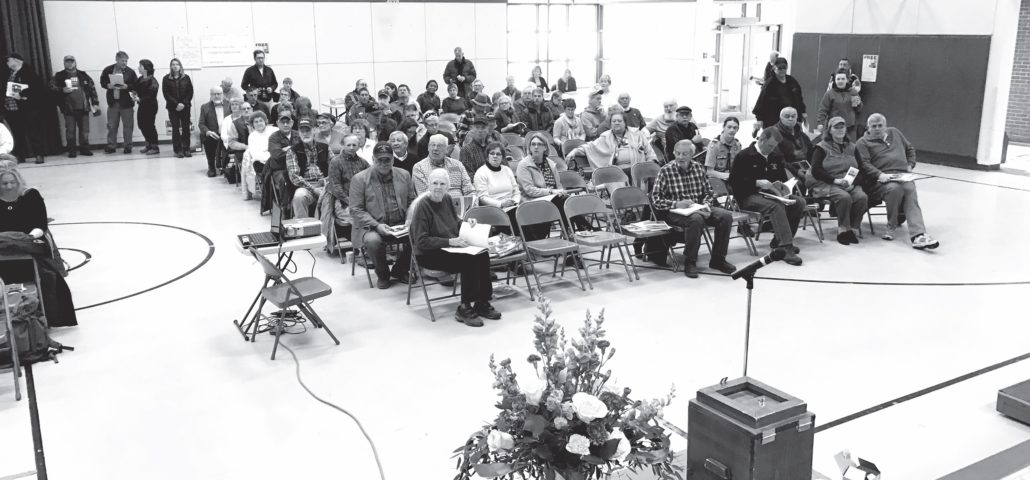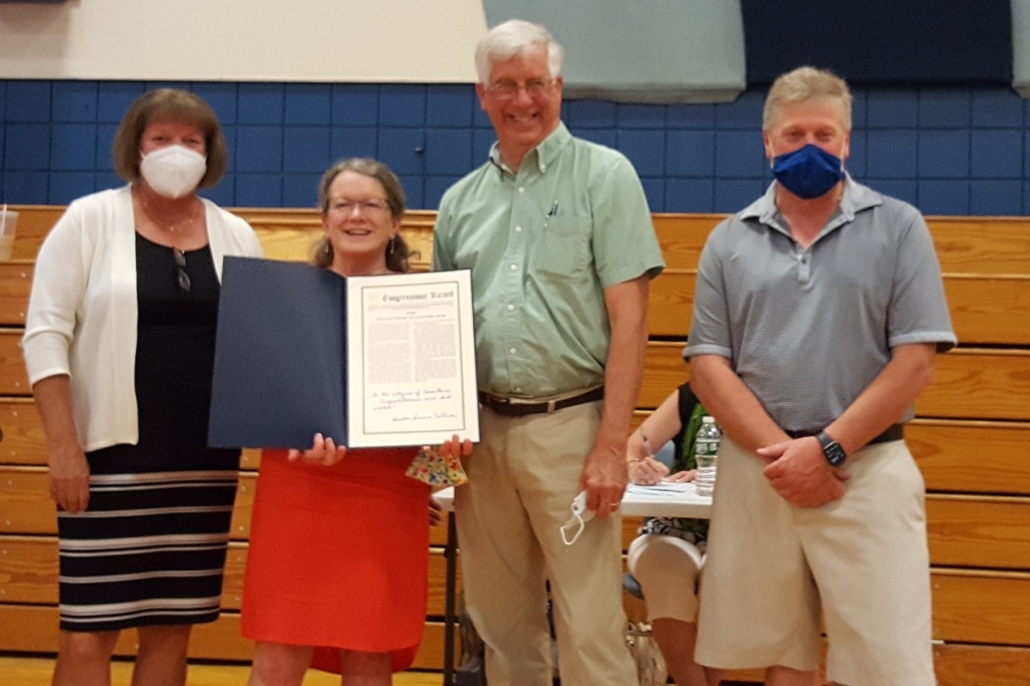June 2021 Local election results for Vassalboro, China and Fairfield

Town meeting photo from 2017. Photo courtesy of Dan L’Heureux
Vassalboro
by Mary Grow
In Vassalboro’s written-ballot elections June 8, Christopher French was elected to succeed John Melrose on the board of selectmen, with 128 votes; and Jolene Clark-Gamage was re-elected to the school board, with 134 votes. Neither had an opponent on the ballot.
Three referendum questions were approved. Town Clerk Cathy Coyne said the votes were as follows:
— To approve a new “Town of Vassalboro Marijuana Business Ordinance,” 123 votes in favor and 32 opposed.
–– To reaffirm the $8.3 million school budget approved the previous evening, 137 votes in favor and 18 opposed.
— To continue the school budget referendum for another three years, 93 votes in favor and 55 opposed.
The total number of votes cast was 156, Coyne reported.
China
by Mary Grow
China voters, acting by written ballot, approved all but one of the 26 articles presented at their June 8 annual town business meeting, Town Clerk Angela Nelson reported.
They thereby funded town departments and services and grants to other entities for the fiscal year beginning July 1, 2021; and gave selectmen authority to act on their behalf in various ways, including selling a 1982 grader and a 40-acre lot on the east side of Lakeview Drive opposite the Cottages at China Lake.
On a separate ballot, they approved the Regional School Unit #18 budget for 2021-22.
The defeated article would have appropriated $26,471 for FirstPark, the regional business park in Oakland. The vote was 135 in favor and 138 opposed, with five blank ballots.
The final warrant article, which was approved on a 198 to 65 vote, said that if any other article did not pass, “the amounts appropriated in FY 2020/2021 for the subject article shall be deemed adopted for FY 2021/2022.”
At the 2020 town meeting, voters appropriated $39,000 for FirstPark for 2020-21.
Fairfield
Unofficial returns from the town of Fairfield, according to town clerk Christine Keller included the following results:
For MSAD #49 school board: Joel Bouchard, 91; Danielle Boutin, 85; and Marlisa Golder, 73.
Also, questions on the MSAD #49 school budget referendum, the district nutrition program and the adult education program all passed.
In regard to the town annual budget referendum, all articles, 2 through 31, passed overwhelmingly, which included all outside agencies that petitioned for funding.



 by The Town Line staff
by The Town Line staff




